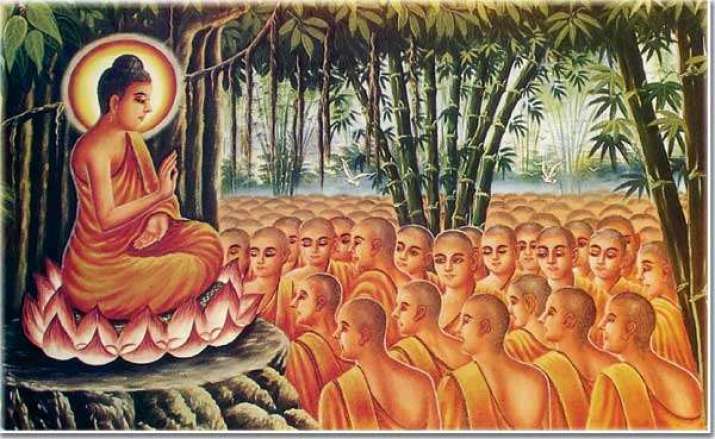Buddhism, an ancient philosophy and spiritual practice. Buddhism introduces the profound concept of karma as the universal law of cause and effect. The cause and effect is governs the cycle of birth, death, and rebirth. Within the framework of karma, one’s actions, intentions, and behaviors have a direct impact on their present and future experiences. This article delves into the understanding of good and bad karma in Buddhism and how these concepts shape our lives.
Karma: The Cosmic Law of Cause and Effect
Karma, derived from the Sanskrit word for “action,” refers to the principle that every action we undertake. Whether physical, verbal, or mental, creates an energy that reverberates through the universe. This energy, whether positive or negative, accumulates over time and molds our future circumstances. Buddhism teaches that we are not victims of fate but architects of our destiny, sculpting it through our thoughts and deeds.
Good Karma: Planting Seeds of Positivity
Good karma is the result of virtuous actions that stem from compassion, kindness, generosity, and selflessness. When we engage in positive behaviors and make choices that benefit others and ourselves, we sow the seeds of good karma. Acts of charity, honesty, and empathy contribute to a positive karmic cycle, ultimately leading to improved circumstances in this life or the next.
Bad Karma: Navigating the Consequences
Conversely, bad karma emerges from harmful actions, driven by negative emotions like anger, greed, and ignorance. Engaging in deceit, violence, or selfishness generates negative energy that can manifest as challenging situations in the future. Buddhism teaches that the consequences of bad karma are not punishments inflicted by an external force, but rather the natural outcomes of our own actions.
Mindfulness and Ethical Living: Shaping Karma
Central to understanding and working with karma is mindfulness – the practice of being fully present in each moment and cultivating awareness of one’s thoughts and actions. By becoming more conscious of our intentions, we can make choices that align with positive karma. Ethical living, rooted in the Noble Eightfold Path of Buddhism, provides guidelines for righteous conduct, fostering the accumulation of good karma.
Breaking the Cycle: Liberation from Karma
Buddhism also emphasizes the possibility of liberation from the cycle of karma and rebirth. Through enlightenment and the cessation of desires and attachments, an individual can break free from the perpetual cycle of cause and effect. This state, known as Nirvana, transcends the constraints of karma and offers the ultimate liberation from suffering.
In Buddhism, the concept of karma serves as a guiding principle for ethical living and mindful actions. The distinction between good and bad karma underscores the importance of our choices and their repercussions on our lives. By understanding karma, individuals can actively shape their destinies, cultivate positive energy, and strive towards liberation from the cycle of birth and rebirth. Through conscious efforts to generate good karma and alleviate bad karma, one can work towards a more enlightened and fulfilling existence.



